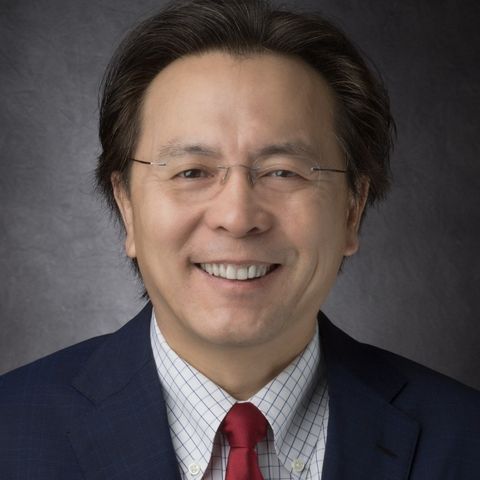Data From SHINE Study Shows Significant Breakthrough for Patients with Mantle Cell Lymphoma
Aug 12, 2022 ·
3m 29s

Download and listen anywhere
Download your favorite episodes and enjoy them, wherever you are! Sign up or log in now to access offline listening.
Description
Michael L. Wang, MD, Professor, Department of Lymphoma & Myeloma at the University of Texas MD Anderson Cancer Center, discusses results of the phase 3 SHINE study which evaluated the...
show more
Michael L. Wang, MD, Professor, Department of Lymphoma & Myeloma at the University of Texas MD Anderson Cancer Center, discusses results of the phase 3 SHINE study which evaluated the safety and efficacy of ibrutinib in combination with bendamustine and rituximab in patients 65 years of age or older with newly diagnosed mantle cell lymphoma. These data were recently presented at the American Society of Clinical Oncology (ASCO) 2022 Annual Meeting and were published in The New England Journal of Medicine.
Mantle cell lymphoma is a rare form of non-Hodgkin’s lymphoma in which B-cells become cancerous and form tumors in the lymph nodes that can quickly spread to other regions. It commonly affects people over the age of 65 who typically cannot tolerate intensive chemoimmunotherapy and stem cell transplantation, resulting in poor clinical outcomes.
As Dr. Wang explains, the SHINE study enrolled 523 patients 65 years of age or older with newly diagnosed mantle cell lymphoma. All participants were randomly assigned to receive 560 mg ibrutinib QD or placebo in combination with bendamustine and rituximab for a maximum of six 28-day cycles. Participants with a complete response or partial response continued to receive maintenance therapy with rituximab every second cycle for a maximum of 12 additional doses. Ibrutinib or placebo was administered daily until progressive disease or unacceptable toxicity.
show less
Mantle cell lymphoma is a rare form of non-Hodgkin’s lymphoma in which B-cells become cancerous and form tumors in the lymph nodes that can quickly spread to other regions. It commonly affects people over the age of 65 who typically cannot tolerate intensive chemoimmunotherapy and stem cell transplantation, resulting in poor clinical outcomes.
As Dr. Wang explains, the SHINE study enrolled 523 patients 65 years of age or older with newly diagnosed mantle cell lymphoma. All participants were randomly assigned to receive 560 mg ibrutinib QD or placebo in combination with bendamustine and rituximab for a maximum of six 28-day cycles. Participants with a complete response or partial response continued to receive maintenance therapy with rituximab every second cycle for a maximum of 12 additional doses. Ibrutinib or placebo was administered daily until progressive disease or unacceptable toxicity.
Information
| Author | Peter Ciszewski, CheckRare |
| Organization | CheckRare |
| Website | - |
| Tags |
Copyright 2024 - Spreaker Inc. an iHeartMedia Company
